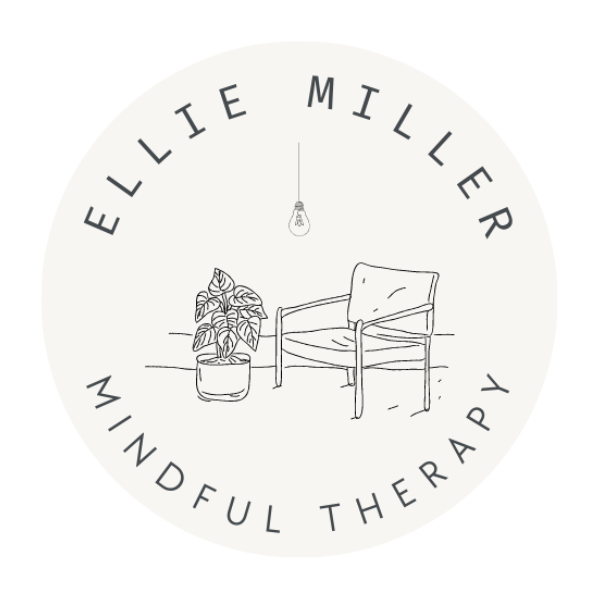Anxious Love: How Anxiety Impacts Relationships and What You Can Do About It
Have you ever tried to cook a romantic dinner while your smoke detector was going off every five minutes?
It's hard to focus on the delicious meal you're trying to prepare when all you can hear is that piercing alarm. Similarly, when one or both partners are struggling with anxiety, it can be hard to focus on the love and connection you're trying to build when anxiety keeps interrupting and demanding attention like a smoke detector.
But don't worry, just like you can turn off the smoke detector and get back to cooking, there are ways to turn down the volume on anxiety and get back to building a healthy relationship.
Anxiety can pose unique challenges in relationships, and when one or both partners struggle with anxiety, it can impact the relationship in a number of ways.
A study published in the Journal of Anxiety Disorders found that couples where one partner had anxiety reported lower relationship satisfaction and more conflict than couples where neither partner had anxiety.
couples where one partner had anxiety reported lower relationship satisfaction and more conflict than couples where neither partner had anxiety.
(McLeod & Weisz, 2004)
But the good news is that there is help available!
In this blog post, we'll explore how anxiety affects relationships and the benefits of couples therapy in addressing these issues. We'll also go over some practical tips and strategies for managing anxiety in your relationship, so you can start enjoying a healthier and happier partnership.
Ready to stop anxiety from getting in the way of peace and ease in your relationship?
Common Ways Anxiety Impacts Relationships (and how to deal)
1.) Communication challenges.
Anxiety can make it difficult to communicate effectively. You or your partner might struggle to articulate your thoughts and feelings, leading to misunderstandings or hurt feelings.
Struggling to express emotions clearly
Difficulty understanding each other's perspectives
Feeling misunderstood or unheard
The Solution:
Practice active listening and reflecting back what your partner is saying to ensure you understand each other correctly
Use "I" statements to express how you feel instead of blaming or accusing language
Consider taking a communication or conflict resolution course or attending couples therapy to improve communication skills
2.) Trust issues
Anxiety can lead to distrust and suspicion, even when there's no reason to doubt your partner. You might feel like your partner is hiding something or lying to you, even when they're not.
Feeling insecure in the relationship
Worrying about your partner's loyalty
Accusing your partner of things they haven't done
The Solution:
Talk openly and honestly with your partner about your feelings of insecurity or distrust
Work together to establish trust-building behaviors, such as being honest, transparent, and consistent in your actions
Address any underlying issues that might be contributing to the trust issues, such as past betrayals or early attachment wounds
Practice self compassion to feel comfier in your own skin, work towards building self trust.
3.) Dependence.
Anxiety can cause one partner to become overly dependent on the other for emotional support. This can create an imbalance in the relationship, with one partner feeling overwhelmed and the other feeling responsible for their partner's emotional well-being.
One partner relying on the other for emotional support
One partner feeling overwhelmed by the other's emotional needs
Over reliance on your partner for reassurance
The Solution:
Set healthy boundaries for emotional support and communicate openly about what you need from each other in the relationship
Work on building individual coping skills and strategies to reduce the dependence on each other for emotional support
Individual therapy could be helpful here in tapping into your inherent resilience and learning to work with tough feelings.
4.) Avoidance
Anxiety can cause one or both partners to avoid certain situations, conversations or activities, which can limit the experiences you share as a couple.
Avoiding social situations or events
Avoiding discussing certain topics
Limiting the types of activities you do together
The Solution:
Create a safe and supportive environment for discussing difficult topics or situations
Practice exposure therapy or gradual exposure to the situations or activities that cause anxiety
Practice mindfulness meditation to feel more comfortable riding the waves of discomfort, and start to trust that you can do hard things!
Consider seeking individual therapy or support to work on managing anxiety symptoms and reducing avoidance behaviors
5.) Intimacy issues
Anxiety can make it difficult to connect intimately with your partner. You might struggle to be vulnerable or feel disconnected during intimate moments.
Difficulty feeling comfortable being physically intimate
Struggling to be emotionally vulnerable
Feeling disconnected during intimate moments
The Solution:
Practice mindfulness and relaxation techniques to reduce anxiety and increase feelings of comfort and safety during intimate moments
Communicate openly about any anxieties or concerns related to intimacy and work together to create a supportive and understanding environment
Seek individual or couples therapy to work on improving emotional intimacy and connection in the relationship
So What should you do next?
Can you relate to any of these challenges in your relationship?
First- know that you're not alone, and don’t you worry your little heart! Anxiety is SO workable, and dealing with it head on can lead you to the world’s biggest sigh of relief.
Couples therapy can help you work towards a stronger, more fulfilling relationship not only with your partner, but with yourself too.
Psst I also made this nifty journal prompt generator that’s all themed around anxious attachment. Feel free to use it as a vehicle for self reflection!
For Healing Anxious Attachment
Sources
McLeod, H. J., & Weisz, J. R. (2004). The therapy process observational coding system-alliance scale: Measure characteristics and prediction of outcome in usual clinical practice. Journal of Consulting and Clinical Psychology, 72(2), 176–185.
Hi! I’m Ellie, a Baltimore based private practice therapist offering online therapy to empathetic women & couples in Maryland. I help women manage anxiety & stress and couples strengthen their relationships.
If you want more anxiety tools and tips from my private practice, straight to your inbox, I’d love to have you join The Detangler, my weekly lighthearted newsletter. If you live in Maryland or Virginia, reach out to see if we’re a good fit for therapy!









